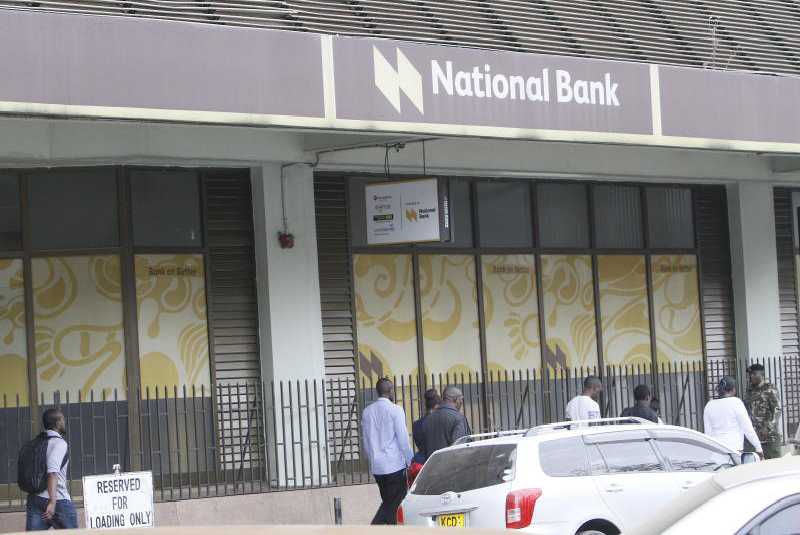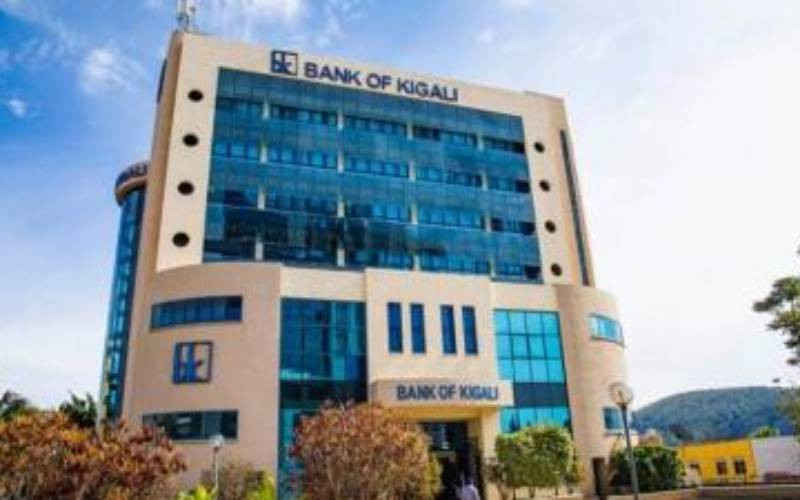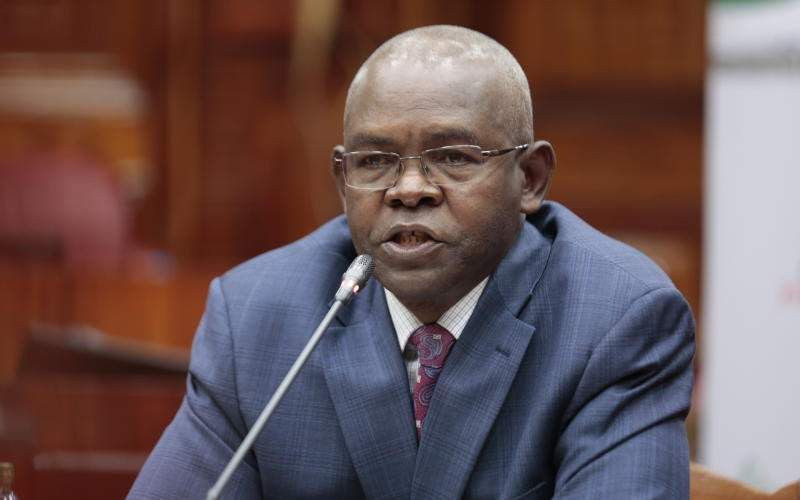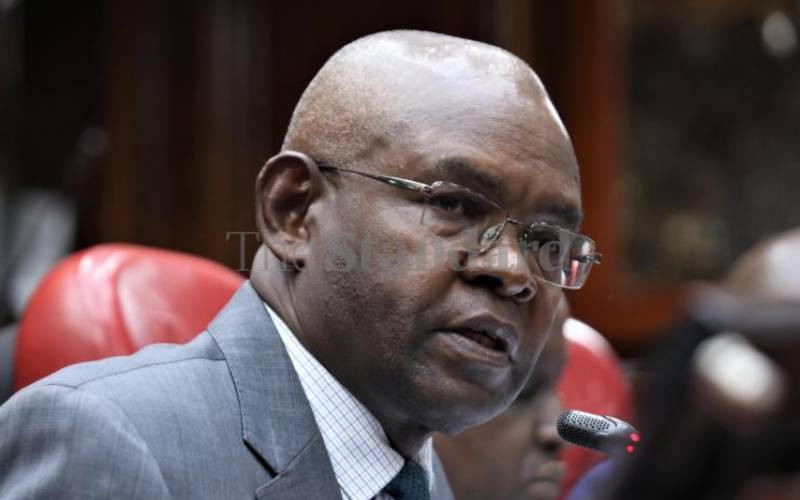
Just two years after Wilfred Musau took over from Munir Ahmed, National Bank of Kenya (NBK) is facing a crisis as Sh4.2 billion bailout money from principal owners delays.
Its core capital is almost wiped out and to make the matter worse, it is in the red on several Central Bank of Kenya (CBK) safety ratios and tension is mounting between the lender and some of its corporate clients.
The Nairobi Securities Exchange market has not been kind to the bank either. The bank’s listed stock is shedding its share price in the last one year, dropping from Sh9.15 to Sh4.95 last week; a reversal of the rally that saw the counter hit Sh12.25 in August 2017.
When Mr Munir left NBK, it had suffered after restating its books in 2015 under a cloud of allegations of plunder.
However, Mr Musau led the bank to profitability in his first year as CEO, bouncing back from a huge loss the previous year.
But just like his predecessor, he may have raised the bank but could now be overseeing its decline.
For the first half of the year, NBK posted a Sh282 million net loss from Sh179 million profit last year - but that was the least of the lender’s problems.
The bank has wiped out its core capital by 83 per cent in just one year from Sh10.1 billion to Sh1.7 billion and has run afoul of some key CBK ratios that measure business viability.
“The adjusted capital ratios include the expected credit loss provisions added back to the capital in line with the CBK guidance note issued in April 2018 on the implementation of IFRS 9,” the lender’s management said in a statement accompanying the half-year results.
Statutory minimum
Current capital is only Sh738 million above the statutory minimum of Sh1 billion, which has led to a breach of three CBK ratios that measure the soundness of banks.
Core capital to total deposits ratio is at 1.8 per cent against the statutory minimum of eight per cent while core capital to total risk-weighted assets ratio is at two per cent against the minimum 10.5 per cent.
“The two ratios have a bearing on how much deposits a bank can accumulate and how much money it can loan out. So at the current level, the bank is constrained on expanding its loan book,” an analyst who sought anonymity said.
As at end of June, the loan book was Sh47.8 billion, down from Sh57 billion at end of December 2017, a decline of almost Sh10 billion in six months.
Stay informed. Subscribe to our newsletter
NBK has now opted to woo depositors with a lucrative savings plan even as it waits for a bailout which is in limbo because of disagreements between top shareholders, the National Treasury and National Social Security Fund.
Musau launched the last ditch effort, offering returns for deposits as low as Sh5,000.
Deposits between Sh5,001 and Sh50,000 will earn one per cent while savings between Sh50,001 and Sh2 million will get five per cent. Above Sh2 million will earn seven per cent.
“In the Finance Act 2018, the Banking Act was amended by repealing the requirement for a minimum interest on deposits. However, we have chosen to provide full benefits to our existing and new savings account customers by giving them up to seven per cent in interest on all savings as we celebrate our 50th birthday,” Musau said.
Saddled with huge non-performing loans (NPLs), the bank - according to credible sources within and outside the lender - has launched a controversial debt recovery scheme that may cost it a fortune yet line the pockets of a few.
Financial Standard has learnt that NBK is offering a discount to its corporate loan delinquents but the plan has been hijacked by officers within the rank and file to get kickbacks on the deal.
Just recently, the management was summoned to Parliament to shed light on the deals dubbed ‘write-offs’ by the National Assembly Finance Committee.
Finance Committee Chairman Joseph Limo did not respond to our text messages by the time we went to press.
However, according to a source who had spoken with the CEO, Musau appeared in Parliament and gave all the information that was required, except what was considered confidential to the clients and the bank could not breach.
NBK is carrying a huge bad loan burden of Sh30.1 billion, part of which it may be forced to write off for non-recovery.
While other lenders opt to hire loan recovery firms to pursue the borrower at a discount or attach property and sell to recover funds, NBK decided to engage its clients directly to reach a gentleman’s agreement.
The defaulter could agree to pay only part of the loan recoverable and be allowed to refinance and continue with the relationship after washing off the legacy debt.
But it is here that some bank staff apparently went to some of the big clients and demanded kickbacks to effect the write-offs.
Declined
NBK declined to answer our queries specific to the parliamentary committee’s interrogations but denied allegations on the kickbacks.
“We refer to your email dated 19th October in respect to some of the bank’s customers for whom you seek clarity on contentious issues which are the subject of correspondence exchanged between the bank and our customers, wherein parties have taken respective positions.
“In our view, the allegations are baseless and the real facts have been grossly misrepresented,” Musau said in an emailed response.
“Any attempt to provide the clarification sought would expose the bank to breach of customer confidentiality in the circumstances,” explained Musau.
Financial Standard has seen a complaint sent to the Central Bank of Kenya by a company complaining about the extortion attempt - which the owner declined to give. The borrower accused NBK of advised his firm to default on loan so as to get a waiver.
“You previously informed me that I would have to be in default to be considered for a waiver,” the letter to NBK read in part.
In the last meeting to decide on the write-offs, his firm was not considered. CBK declined to reply to our queries on the extent of investigations into the alleged misconduct raised by the company.
Another borrower said their request is still subject to a board meeting in the next couple of weeks and declined to give details so as not to prejudice his case.
A local construction company is claimed to have sought a security swap under the scheme, although the valuation of the swapped properties is the primary concern.
It is also alleged that another corporate client was asked for two units of houses at a high-end Two Rivers property in Nairobi, which he apparently declined.
NBK is also bogged down by huge debts that it is unable to enforce due to litigation. This includes property owned by the late billionaire Tahir Sheikh Said (TSS) whose succession is in court.
TSS Investments, which owns TSS Grain Miller, was declared bankrupt last year, causing the Kenya Commercial Bank to take over for auction to recoup a Sh2 billion loan.
NBK, which had also given a similar amount to the investor, rushed to court to stop the sale.
In a separate transaction, Juja Coffee Exporters, also associated with the late Mombasa tycoon, has disputed a Sh4 billion debt demanded by the NBK.
Owes money
The company admitted before a Mombasa court in May that it owes the bank money but disputes the amount sought.
Even as NBK seeks to mobilise depositors, the move sparks a reminder of an alleged fraud during the former management’s tenure when the bank hired two companies to mobilise deposits at a commission.
An affidavit filed by the Capital Markets Authority (CMA) in court said NBK approached two firms to help it convince large depositors to put their money in the bank to help it overcome liquidity issues, but which later defrauded it of Sh991 million.
The firms were Edge Capital Consultancy and Advest Company. Edge was not even a registered company when NBK contracted it in May 2014, it got registered four months later.
The companies apparently collected the commissions without any confirmation that they had actually helped the bank get any money.
 The Standard Group Plc is a
multi-media organization with investments in media platforms spanning newspaper
print operations, television, radio broadcasting, digital and online services. The
Standard Group is recognized as a leading multi-media house in Kenya with a key
influence in matters of national and international interest.
The Standard Group Plc is a
multi-media organization with investments in media platforms spanning newspaper
print operations, television, radio broadcasting, digital and online services. The
Standard Group is recognized as a leading multi-media house in Kenya with a key
influence in matters of national and international interest.
 The Standard Group Plc is a
multi-media organization with investments in media platforms spanning newspaper
print operations, television, radio broadcasting, digital and online services. The
Standard Group is recognized as a leading multi-media house in Kenya with a key
influence in matters of national and international interest.
The Standard Group Plc is a
multi-media organization with investments in media platforms spanning newspaper
print operations, television, radio broadcasting, digital and online services. The
Standard Group is recognized as a leading multi-media house in Kenya with a key
influence in matters of national and international interest.










